Projects
Adaptive Education
To the project browser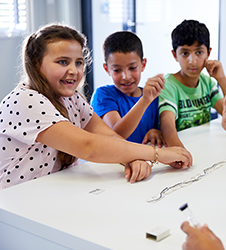
MultiDynAssess-India
The project designs, implements, and evaluates multilingual dynamic assessment (DA) in Indian primary government schools where English is taught in a context characterised by high sociolinguistic diversity and widespread code-mixing practices. It investigates how multilingual versus English-only DA affects Grade 4 students’ language and content learning over time, drawing on classroom observations and a longitudinal comparison with traditional static assessment in schools in New Delhi and Guwahati. By aligning assessment with learners’ full linguistic repertoires, the project aims to promote equity in education and offers implications for multilingual assessment practices in India and other linguistically diverse contexts in the Global South.
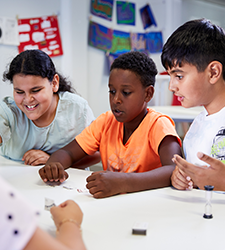
MultiDiskurs
The project aims to account for patterns of variation in the processing of linguistic structures in discourse. In particular, we investigate how bilingual children ranging in age from 8 to 12 integrate morphosyntactic and discourse information, for example by using eye-tracking experiments. Among the factors that contribute to individual variation, we explore the role of cross-linguistic influence, differences in bilingual profiles in terms of language and literacy exposure, individual cognitive skills and bilinguals’ ability to share discourse strategies across their two languages.
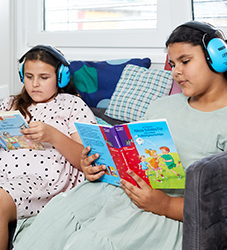
KaKoTex
The project KaKoTex investigates how grammatical features of texts and individual characteristics of the readers (e.g. multilingualism) affect text comprehension in 4th grade. The focus is on the comprehension of linguistic means for marking cause-consequence relationships, so-called causal connectives (e.g. because, therefore). The project aims to find out (i) whether explicit marking of causal relations facilitates text comprehension, (ii) for which causal connectors this holds, and (iii) which students benefit from it.

KonText
The KonText project investigates how grammatical features of texts and individual characteristics of readers (e.g. multilingualism) influence text comprehension. The focus is on the comprehension of linguistic means of indicating basic sequential relationships, so-called causal connectors (e.g. because, since, therefore). The project aims to find out (i) whether explicit labelling of causal relations facilitates text comprehension, (ii) for which causal connectors this is true, and (iii) which students benefit from this.
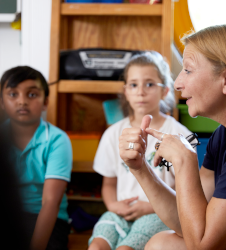
DAZHOCHZWEI
The project DAZHOCHZWEI is a cooperation between the Professorship for German as a Second Language (Goethe University, Prof. Dr. Petra Schulz), the Ministry of Education, Hesse, and the Teacher Academy, Hesse. DAZHOCHZWEI aims at implementing a linguistically based language training for children into the (continuing) education program for primary school teachers in Hesse. The project […]

SPEAK-Phonology
The research project SPEAK-Phonology is a part of the joint project SPEAK (https://www.validierungsfoerderung.de/validierungsprojekte/speak). This part of the project focuses on developing standard values for a nonword repetiton test that was specifically constructed with multilingual children in mind. Standard values will be calculated for multilingual children between the ages of 4 and 8 and will take their individual biographies of acquisition into account.
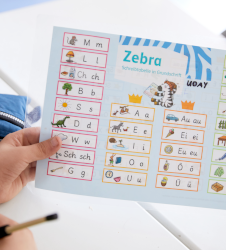
DaZ ab 6
Die Rolle des expliziten Sprachwissens für den Deutscherwerb bei SeiteneinsteigerInnen an Schulen und bei geflüchteten jungen Erwachsenen
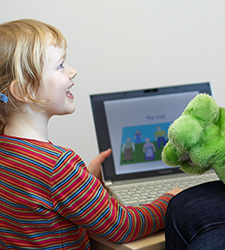
WoBi
The project WoBi investigates how children with German as their second language (Age of Onset: 2–4 years and 6–7 years) acquire the typical stress patterns of German.
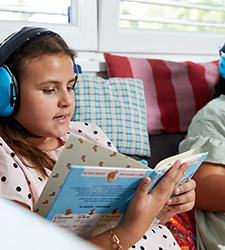
iLearn
This project evaluates the potential of computerized formative assessment to support reading acquisition of children with reading difficulties. Formative assessment enables teachers to adapt their teaching methods to the individual learning progress of their students.

MoBiLe
The project investigates the role of language and executive functions in cognitive and academic development of elementary school children. The focus is on the comparison of monolingual and bilingual children (especially children from immigrant families), who often differ in terms of their language abilities as well as their academic achievement.